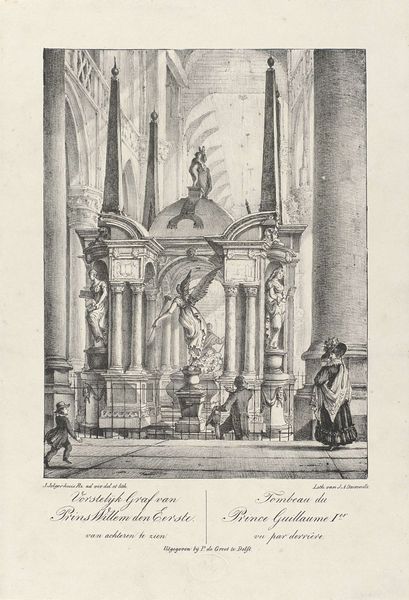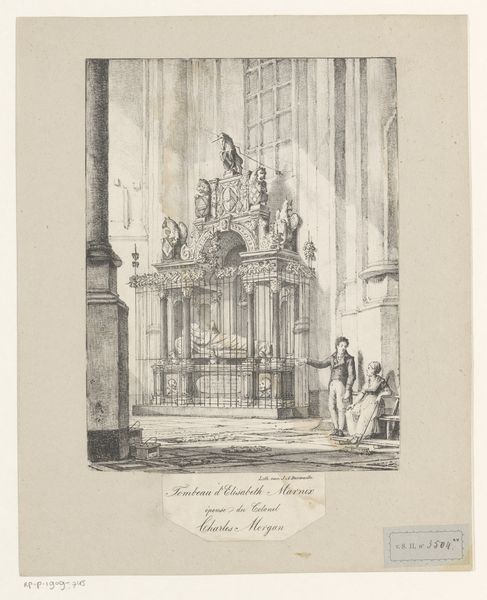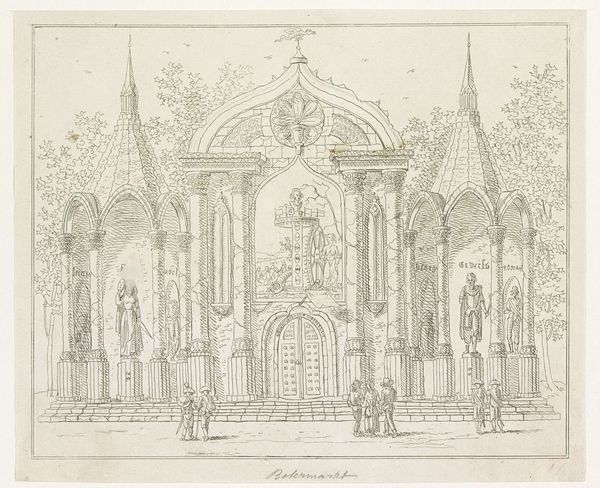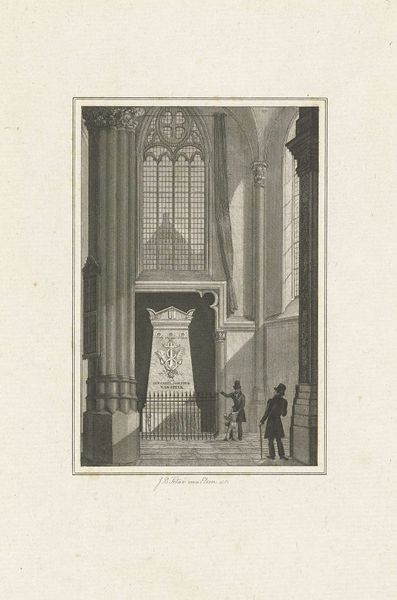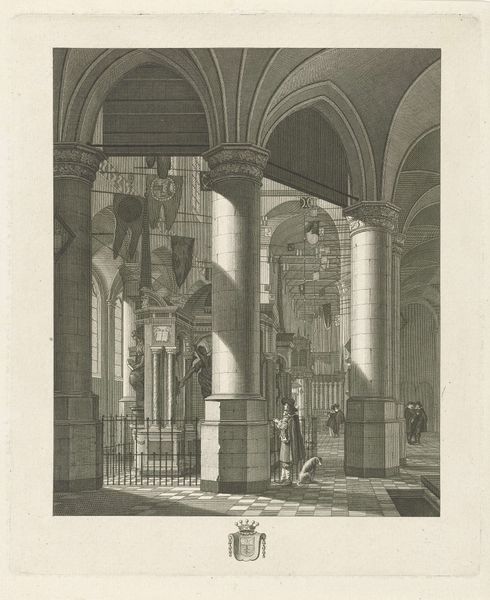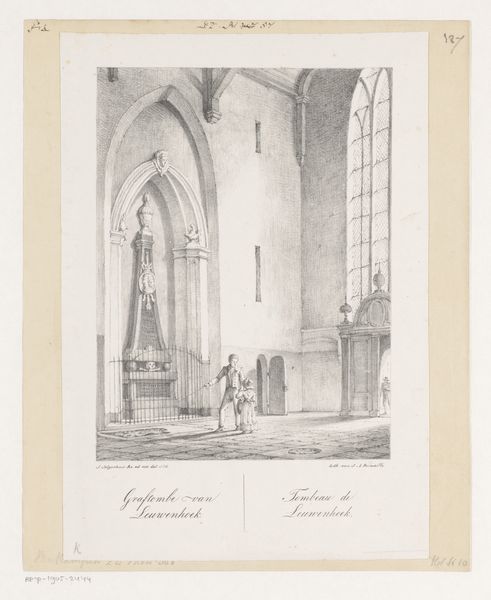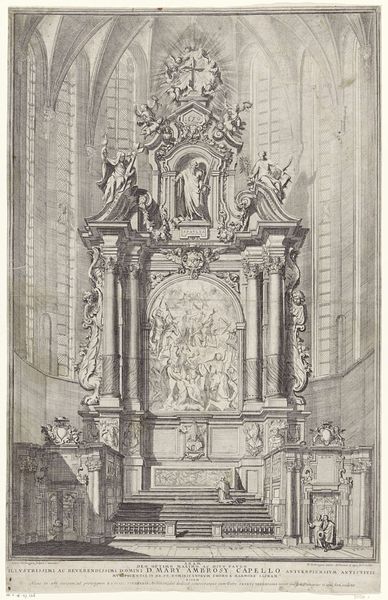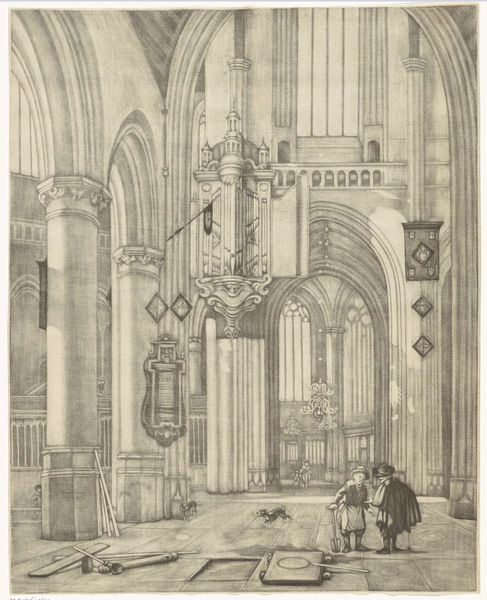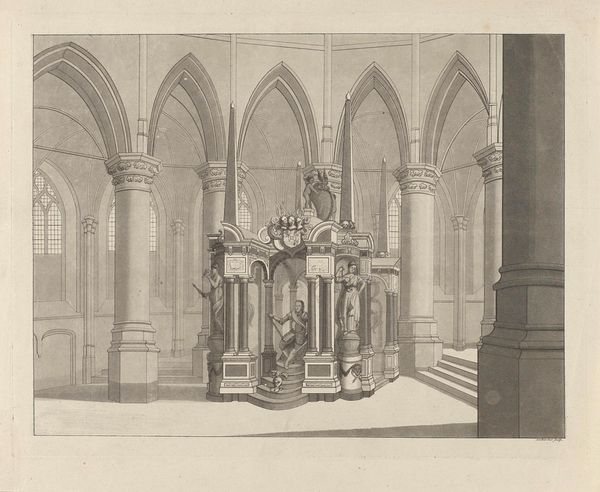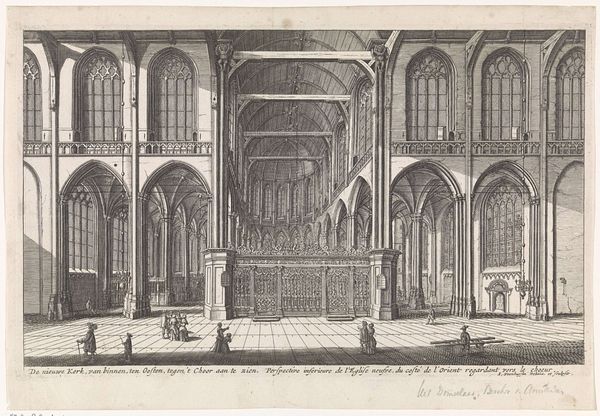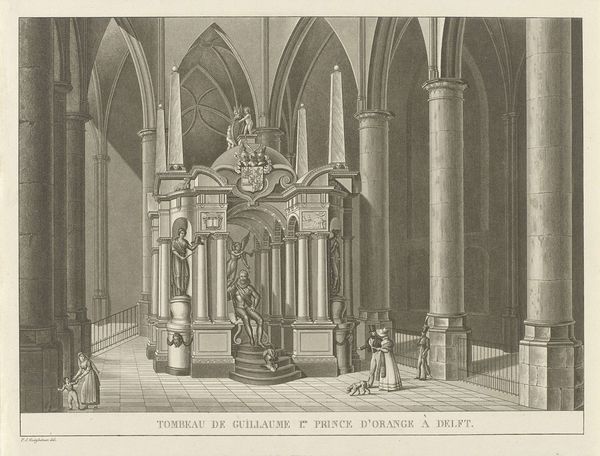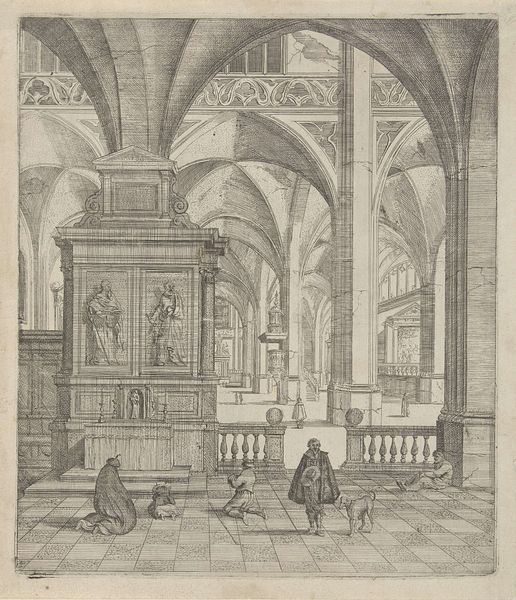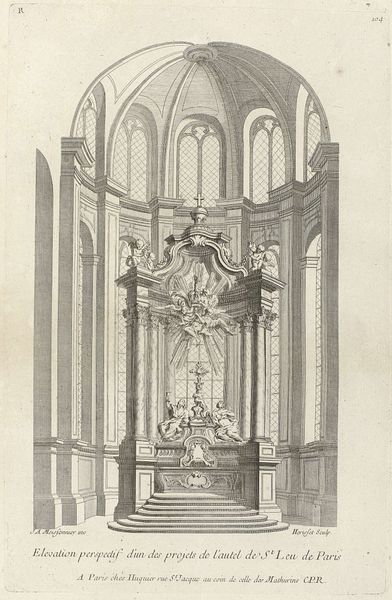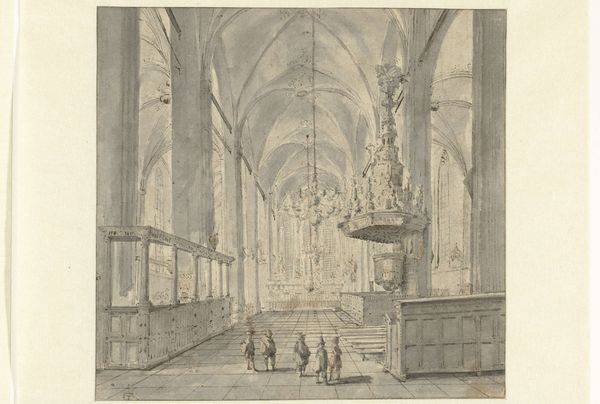
drawing, print, ink, engraving, architecture
#
portrait
#
drawing
# print
#
old engraving style
#
perspective
#
form
#
ink
#
classicism
#
line
#
cityscape
#
history-painting
#
academic-art
#
engraving
#
architecture
#
realism
Dimensions: height 330 mm, width 227 mm
Copyright: Rijks Museum: Open Domain
Johannes Jelgerhuis created this drawing of the Tomb of William I around 1823, rendered in ink or graphite on paper. The image is a study of the stone and marble monument. It shows the ways in which craftsmanship and artistry were deployed in the service of power. Observe the artist's meticulous lines, mirroring the precision and detail etched into the tomb itself. The stark contrast of light and shadow emphasizes the tomb's solemn presence. The artist focuses on the monumentality of the tomb and the ways in which the tomb uses symbolic figures to glorify the legacy of William I. The tomb is more than just a static object; it is a powerful symbol of a nation's collective memory, shaped by skilled hands and political will. The tomb's image is captured through a detailed drawing, reminding us of the layers of artistry, labor, and historical context embedded within it.
Comments
No comments
Be the first to comment and join the conversation on the ultimate creative platform.
